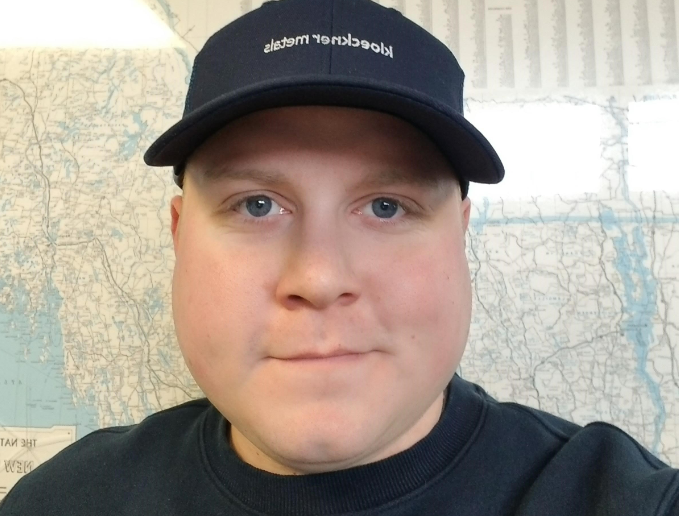
What are close call cards? Exactly what they sound like: simple note cards that give employees the opportunity to record and share with their team a near incident on the floor that could, under existing or similar conditions, be dangerous. Despite their simplicity, they’ve had a huge impact on the safety culture at Kloeckner, empowering managers to encourage an environment that puts safety top of mind and employees to take a safety first, safety always attitude.
According to James Koehler, Traffic Coordinator and Safety Manager at Kloeckner’s Nashua branch, the use of close call cards has created a “see something, say something environment.” It’s “great for the entire branch,” he said. “Everyone is looking out for one another’s safety and not worrying about being ‘told on.’ Instead, they’re focused on doing the correct things in the safest possible way.”
But the results haven’t just been qualitative, they’ve been quantitative too. “We are currently at 665 days without a lost-time incident/accident,” James said, a testament largely to the success of close call cards among other safety initiatives Kloeckner has initiated.
“Close call cards are a huge part of our safety program at Nashua,” James said. “I like to consider them the checks and balances for safety throughout our shop. It enables everyone to have a voice and improve safety and culture throughout our facility.”
It wasn’t always that way. Close call cards were implemented in order to continue driving down injuries. “We wanted to improve our safety program even more and close call cards have gotten people to think about what they are doing before they begin. It has created a culture where if something is being done unsafely or incorrectly, it will be put on a close call card so that we can manage and fix the situation immediately. It makes the employees feel less like they are ‘telling’ on someone, and more like they are looking out for everyone’s well-being.”
In other words, close call cards have taken safety from a matter of personal to a space of collective responsibility. Unfortunately, that doesn’t mean that they’re standard in the manufacturing industry and James hopes that Kloeckner will be at the forefront of changing that. “In the future, I would like to see this as an industry standard based on the success that we’ve had at Kloeckner,” James said.
James’ recommendation to other manufacturers considering close call cards is to make sure that employees feel trusted by management. “The only thing I would say would be a mistake in terms of close cards,” James said, “is taking away the trust the employee has with you when they bring you a filled-out card. We don’t want the entire facility knowing who wrote a close call card upon so and so. We can manage and deal with most of the scenarios by protecting the privacy of our employees and not letting everyone know who writes the cards up.”
To avoid similar mistakes, Kloeckner has established guidelines in a Close Call Card policy. “We’ve given out guidelines to follow so that employees know what we’re looking out for on the cards. Kloeckner allows each branch to manage this program how they see fit and utilize incentives like $25 for every submitted close call card. Locally, I run another raffle to get the employees even more involved in spotting ‘Close Calls’.”
In James’ opinion, the incentives and rewards are also instrumental to the success of a close call program because they too promote the idea that close call cards are about improving safety for everyone rather than ‘telling on’ team members. He encourages other branches to “keep the employee incentives coming” as a way to improve the Close Call Cards program overall and meanwhile pushes Kloeckner HQ to continue to promote data on overall safety as a way to emphasize its importance.
“With those incentives, everyone in the facility wants to stay involved, make a little extra money, and potentially win up to a $250 raffle prize, just to help keep our facility as safe as we possibly can on a daily basis,” James said.
As Kloeckner’s Traffic Coordinator & Safety Manager, James wishes he could be satisfied with the success of the close call program in improving Kloeckner’s overall injury record and culture of safety, but he has his eyes set on additional initiatives. “The biggest thing on my safety list,” James said, “would be getting the floors in our facility repainted with parking garage paint. But, we currently have crane safety light projects in place now that we are working on to make the cranes in our facility as safe as possible to work with and around.” As James put it, “one thing at a time!”

Steel base plates are fundamental elements employed in various manufacturing...
Metal fabrication is a critical process that transforms raw metal...
The solar industry has undergone a significant transformation by incorporating...

X
The Kloeckner Metals website uses modern technologies. Unfortunately, your browser doesn't support those technologies.
Download the latest version of one of these browsers to experience the site: